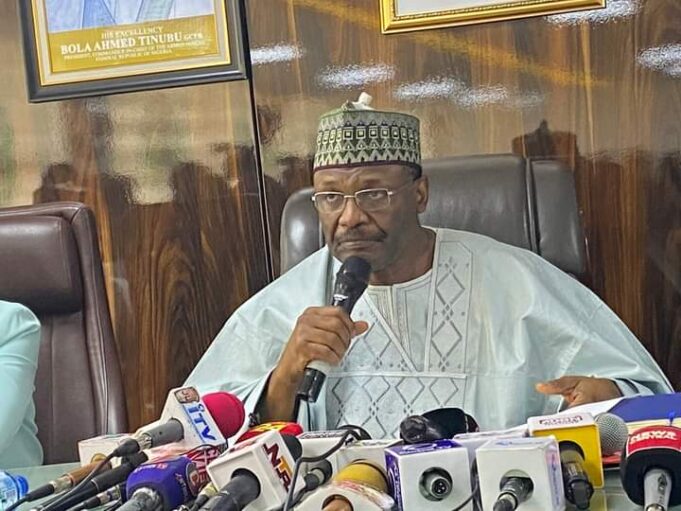The Independent National Electoral Commission (INEC) has unveiled plans to move away from the Permanent Voter Card (PVC) as the primary means of voter accreditation for future elections.
This proposal is part of a broader electoral reform plan to be presented to the National Assembly’s Joint Committee on Electoral Matters.
During a meeting in Abuja with Resident Electoral Commissioners (RECs), INEC Chairman, Prof. Mahmood Yakubu, explained that the introduction of the Bimodal Voter Accreditation System (BVAS) has prompted a reevaluation of PVCs as the sole mode of voter identification.
Yakubu proposed that, moving forward, computer-generated slips, either issued to voters or downloaded from the INEC website, could be used for accreditation, eliminating the need for PVCs in future elections.
“While those with PVCs will still be able to use them to vote, the new method will help reduce costs, eliminate PVC collection issues, and address the problem of PVCs being bought to disenfranchise voters,” Yakubu said.
Yakubu highlighted the successful completion of five off-cycle governorship elections and nine out of 21 bye-elections since the 2023 general elections, deeming it the ideal time to act on the Commission’s post-election review.
He revealed that INEC has compiled 142 recommendations focusing on voter management, electoral operations, election technology, and voter education.
Of these, 86 can be handled administratively by INEC, 48 require collaboration with other stakeholders, and eight necessitate legislative changes.
Among the key reforms proposed are early voting for essential workers such as INEC staff, security forces, and journalists, who are deployed outside their registration areas.
The Commission is also pushing for diaspora voting and the establishment of an electoral offences tribunal, as well as a regulatory body for political parties.
Other planned reforms include improving collaboration with the National Identity Management Commission (NIMC) and National Population Commission (NPC) for cleaning the voter register, enhancing logistics partnerships with transport unions, and stepping up voter education to counter misinformation.
Yakubu reassured Nigerians of INEC’s ongoing commitment to enhancing access to polling units and ensuring the inclusion of underrepresented groups in the electoral process.
These proposed reforms will soon be submitted to the National Assembly for legislative action, marking a significant step in the ongoing electoral reform efforts.

















